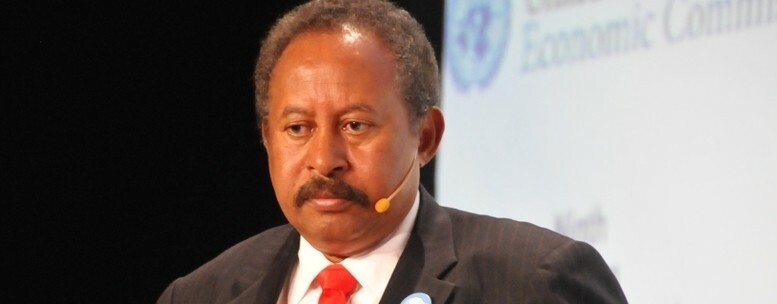Sudan’s prosecution has filed a criminal case accusing former prime minister Dr Abdalla Hamdok of “inciting war against the state” and other charges that could carry the death penalty, according to state-owned media.
Dr Hamdok heads the Civil Democratic Forces alliance (Tagaddum), a coalition of political parties, civil society, and professional groups calling for an end to the ongoing war.
Earlier this year, he signed a declaration of principles with the paramilitary Rapid Support Forces (RSF), calling for direct talks with the army.
Sudanese state media reported Wednesday evening that the Public Prosecution filed cases against former civilian Prime Minister Hamdok Tagadum leader and 15 others, including journalists and politicians who, like Hamdok, live abroad.
The prosecution identified those charged as Al-Wathiq Al-Brair, Secretary-General of the National Umma Party, Zainab and Maryam Al-Sadiq Al-Mahdi, NUP leadership members. Omer al-Digair, head of the Sudanese Congress Party, and his deputy, Khaled Omer Youssif. They also targeted Yasir Arman, head of the SPLM-N Democratic Revolutionary Current, Suleiman Sandal, head of the Justice and Equality Movement, and Taha Osman Ishaq, a leading member of the civil forces, along with several journalists such as Maher Abu Al-Joukh, Shawqi Abdel Azim, and Rasha Awad.
Hamdok, Sudan’s most prominent civilian politician, was the country’s first prime minister in a fragile transition following an uprising after decades under Omar al Bashir’s rule.
Hamdok was placed under house arrest after an October 2021 coup by former allies General Abdel-Fattah Burhan and General Mohammed Handan Daglo.
After a brief reinstatement, Hamdok resigned in January 2022 and fled to UAE. He has since re-emerged as part of the new Taqaddum coalition.
Hamdok has been in talks for several months with Sudanese and regional figures in a bid to put an end to the war.
The Sudanese army and the Rapid Support Forces (RSF) began battling each other in mid-April last year as tensions over plans for a new political transition.
The conflict has driven nearly 8.5 million people from their homes, creating the world’s biggest displacement crisis, pushed parts of the 49-million population close to famine, and triggered waves of ethnically driven killings and sexual violence in the western region of Darfur.
About 13,900 people have been killed since the fighting broke out, according to data recorded by the Armed Conflict Location & Event Data Project.




